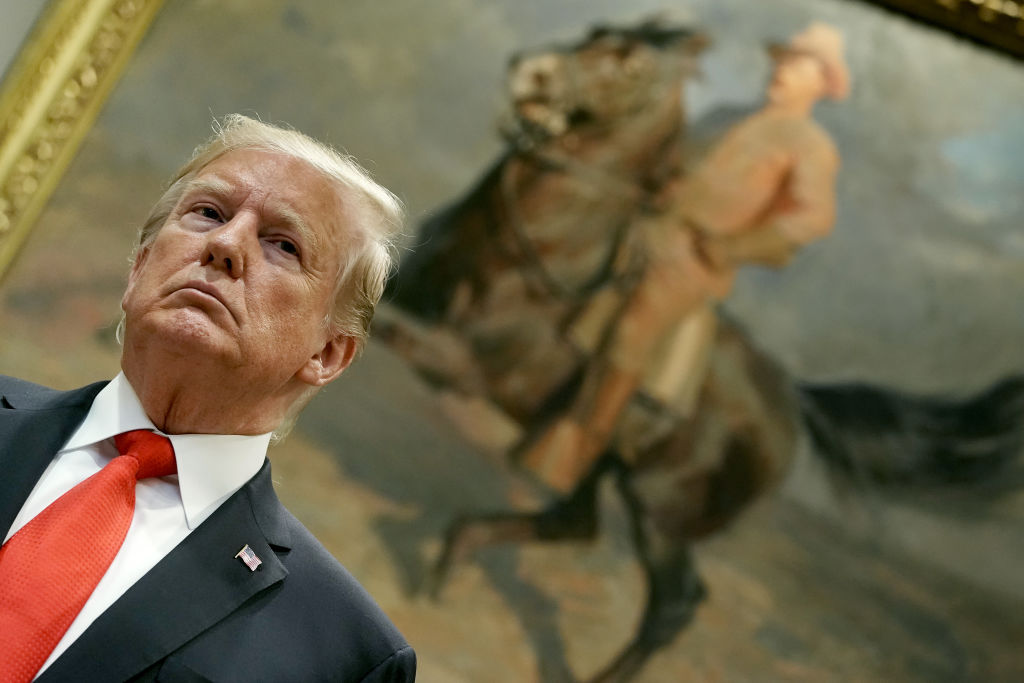
US President Donald Trump’s behaviour at last month’s G7 meeting in Biarritz was criticised as careless and disruptive by many observers. Others argued that the press and pundits pay too much attention to Trump’s personal antics, tweets and political games. In the long run, they argue, historians will consider them mere peccadilloes. The larger question is whether the Trump presidency will prove to be a major turning point in American foreign policy, or a minor historical blip.
The current debate over Trump revives a longstanding question: are major historical outcomes the product of human choices or are they largely the result of overwhelming structural factors produced by economic and political forces beyond our control?
Some analysts liken the flow of history to a rushing river, whose course is shaped by the climate, rainfall, geology and topography, not by whatever the river carries. But even if this were so, human agents are not simply ants clinging to a log swept along by the current. They are more like white-water rafters trying to steer and dodge rocks, occasionally overturning and sometimes succeeding in making it to a desired destination.
Understanding leaders’ choices and failures in American foreign policy over the past century can better equip us to cope with the questions we face today about the Trump presidency. Leaders in every age think they are dealing with unique forces of change, but human nature remains. Choices can matter; acts of omission can be as consequential as acts of commission. Failure by American leaders to act in the 1930s contributed to hell on earth; so did refusal by American presidents to use nuclear weapons when the United States held a monopoly on them.
Were such major choices determined by the situation or the person? Looking back a century, Woodrow Wilson broke with tradition and sent US forces to fight in Europe, but that might have occurred anyway under another leader (say, Theodore Roosevelt). Where Wilson made a big difference was in the moralistic tone of his justification, and, counterproductively, in his stubborn insistence on all or nothing for involvement in the League of Nations. Some blame Wilson’s moralism for the severity of America’s return to isolationism in the 1930s.
Franklin D. Roosevelt was unable to bring the US into World War II until Pearl Harbor, and that might have occurred even under a conservative isolationist. Nonetheless, Roosevelt’s framing of the threat posed by Hitler, and his preparations to confront that threat, were crucial for American participation in the war in Europe.
After World War II, the structure of bipolarity of two superpowers set the framework for the Cold War. But the style and timing of the American response might have been different had Henry Wallace (whom FDR ditched as vice president in 1944), instead of Harry Truman, become president. After the 1952 election, an isolationist Robert Taft or an assertive Douglas MacArthur presidency might have disrupted the relatively smooth consolidation of Truman’s containment strategy, over which the latter’s successor, Dwight D. Eisenhower, presided.
John F. Kennedy was crucial in averting nuclear war during the Cuban missile crisis, and then signing the first nuclear arms control agreement. But he and Lyndon B. Johnson mired the country in the unnecessary and costly fiasco of the Vietnam War. At the end of the century, structural forces caused the erosion of the Soviet Union, and Mikhail Gorbachev speeded up the timing of Soviet collapse. But Ronald Reagan’s defence buildup and negotiating skills, and George H.W. Bush’s skill in managing crises, played a significant role in bringing about a peaceful end to the Cold War.
In other words, leaders and their abilities matter. In a sense, this is bad news, because it means that Trump’s behaviour can’t be easily dismissed. More important than his tweets are his weakening of institutions, alliances and America’s soft power of attraction, which polls show as having
declined under Trump. He is the first president in 70 years to turn away from the liberal international order that the US created after World War II. General James Mattis, who resigned after serving as Trump’s first secretary of defence, recently
lamented the president’s neglect of alliances.
Presidents need to use both hard and soft power, combining them in ways that are complementary rather than contradictory. Machiavellian and organisational skills are essential, but so is emotional intelligence, which produces the skills of self-awareness and self-control, and contextual intelligence, which enables leaders to understand an evolving environment, capitalise on trends and apply their other skills accordingly. Emotional and contextual intelligence are not Trump’s strong suit.
The leadership theorist Gautam Mukunda has pointed out that leaders who are carefully filtered through established political processes tend to be predictable. George H.W. Bush is a good example. Others are unfiltered, and how they perform in power varies widely. Abraham Lincoln was a relatively unfiltered candidate and was one of the best American presidents. Trump, who never served in office before winning the presidency and entered politics from a background of New York real estate and reality television, has proved to be extraordinarily skilled in mastering modern media, defying conventional wisdom and engaging in disruptive innovation. While some believe this may produce positive results—for example, with China—others remain sceptical.
Trump’s role in history may depend on whether he is re-elected. Institutions, trust and soft power are more likely to erode if he is in office for eight years rather than four. But in either event, his successor will confront a changed world, partly because of the effects of Trump’s policies, but also because of major structural power shifts in world politics, both from West to East (the rise of Asia) and from governments to non-state actors (empowered by cyber and artificial intelligence). As Karl Marx
observed, we make history, but not under conditions of our own choosing. American foreign policy after Trump remains an open question.
 Print This Post
Print This Post